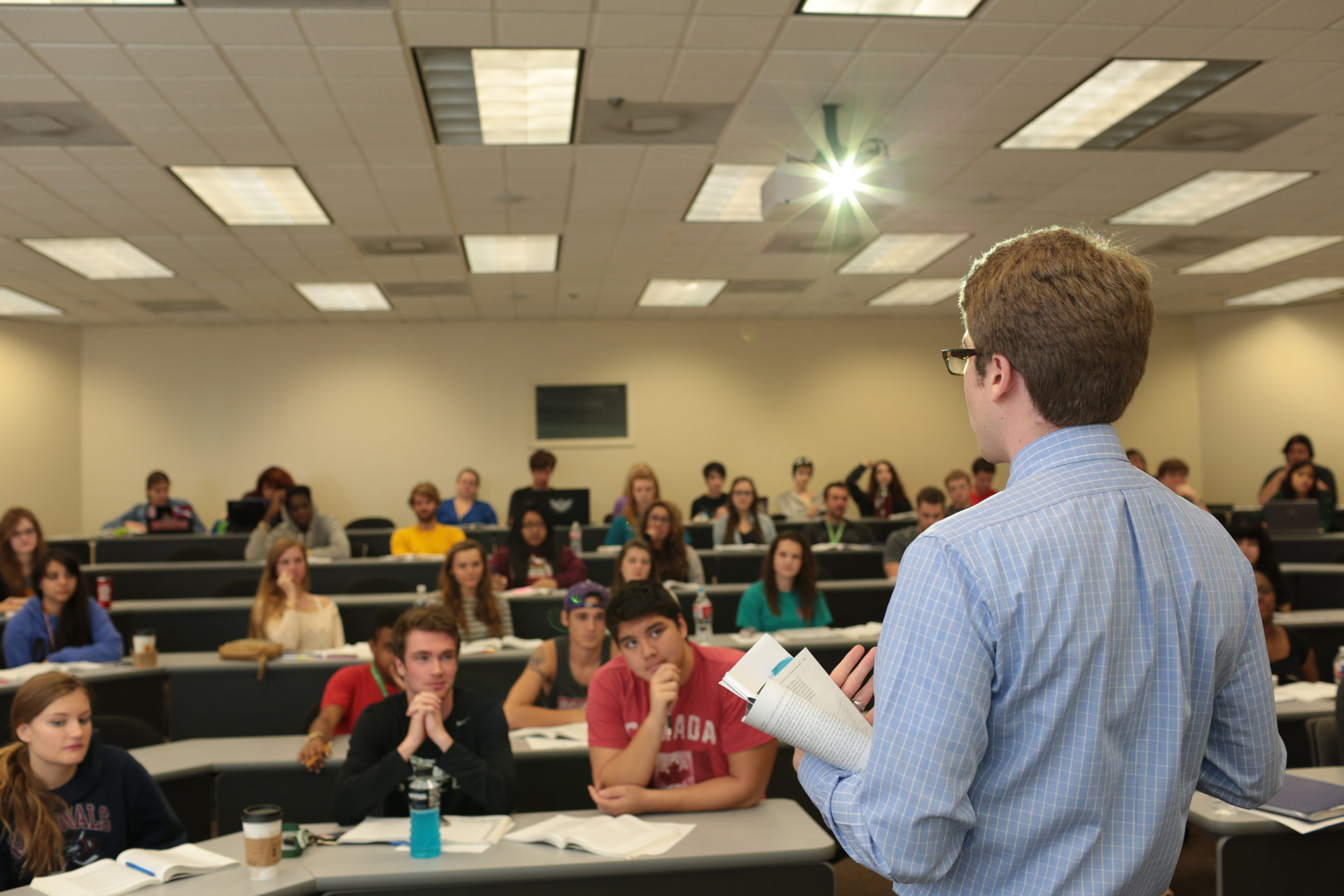SAT, PSAT in your future? Here are a few tips
July 27, 2017 | UHCL Staff

Ask college-bound high school graduates to reflect upon the biggest challenges of
their junior and senior years, and they’ll likely remember the Preliminary SAT and
the even more challenging SAT. Most of the time, students go into the testing room
not knowing what to expect. However, you can prepare for these tests in more ways
than just hitting the books extra hard.
Three times a year, University of Houston-Clear Lake offers a combined PSAT and SAT
preparation course through the university’s Center for Executive Education. These
courses offer hands-on training with challenges, activities and timed exercises to
help students approach these tests with confidence. Scoring well on those tests is
as much about research and strategy as it is about actual scholastic aptitude, says
Brenda Guerrero, the center’s events assistant, and Jennifer Ledwith, a center instructor
who teaches PSAT preparation courses.
Ledwith and Guerrero share some of their insights about how high school students can
successfully surmount those “insurmountable” standardized tests and gain admission
to the college of their choice.
Tips for prevailing over the PSATs
“I remind students that PSAT scores don’t play a role in college admission,” Ledwith
said. “The main purpose of the PSATs is to identify students who are eligible for
merit-based scholarships. But since the PSAT and SAT are so similar, I strongly encourage
students to take both, but the sooner you start planning, the more successful you
can be.”
Ledwith’s additional suggestions:
- Foundational knowledge across time yields much greater benefits than any test-preparation
course. Excellent reading comprehension skills are the key to overall academic success.
Being a prolific reader is not just about learning good grammar and usage – it’s about
developing exactly the critical thinking skills you need to achieve high scores.
- If you’re in a gifted-and-talented program at your middle school, start planning your
high school schedule now. If it’s possible to take geometry as a freshman and advanced
algebra as a sophomore, you’ll be better prepared for the PSAT.
- Remember that the PSAT is just one day. If you do not score well as a freshman, don’t
get discouraged because you will have at least two more opportunities to retake the
test. Speak with your counselor and register for a PSAT test preparation course to
help you build your confidence.
Tips for surmounting the SATs
The most useful strategy isn’t about practicing your essay-writing skills and boning
up on math concepts. “It’s important to do plenty of research about the admissions
process of each of the colleges to which you plan to apply,” Guerrero said. “Decide
on your objectives and list the colleges you are interested in after studying their
admissions requirements.”
Guerrero suggests students investigate these key questions:
- What exactly does your college require in order to gain admission?
- Study scholarship requirements closely. They vary from college to college, and private
schools’ requirements are often very different from state schools.
- Find out if your chosen colleges accept “superscores.” If you’ve taken the SATs multiple
times, some colleges will allow you to submit your highest verbal and math scores
from all the tests – your “superscores.” Others require you to submit the scores you
made on just one test. University of Houston-Clear Lake does not accept superscores,
but researching the other colleges you’re applying to will tell you if you can use
this strategy to increase your chances for admission.
Not all SAT prep courses are alike. Evaluate your options.
- Take SAT preparation courses that are well-structured and target the math and vocabulary
strategies that you might have missed in class. Your course should measure your progress
from the first day to the last session.
- Use College Board practice exams to become used to the structure of the test. Review
the answers and figure out your mistakes.
Remember that your SAT scores are not necessarily the deciding factor when colleges
are evaluating your application,” Ledwith said. “Many colleges are taking a holistic
view, considering all the elements of the application and weighing them more equally.”
When you’re researching your chosen college, speak to an adviser and find out the
role standardized test scores play in the admissions process. Stay positive and keep
investigating your colleges. When you’ve got all the information to weigh your options,
you’ll be able to make the best choice for you.
For more information about UHCL’s college test preparation courses, visit www.uhcl.edu/center-executive-education.
About the Author:
Recent entries by
October 18 2022
Better technology transforms campus safety: Police Chief demonstrates SafeZone to students
October 14 2022
Student's skill with drones takes chicken turtle research to new heights
October 11 2022
Planting event to help UHCL restore native plants to campus, support environmental sustainability







